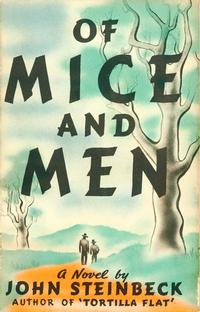 Of Mice and Men
Of Mice and Men

24/7 writing help on your phone
Save to my list
Remove from my list
A non-fiction novel is a book that is based on true events, but is written in a novelistic style. This means that the book is written in a way that is similar to a fiction novel, but all of the events in the book actually happened. Non-fiction novels are usually about real people and real events, but they can also be about fictional characters and events.
The novel-essay is a a love story, told as an autobiography, in which the narrator, a young woman falls in love with a older man. The couple live together for a time, but eventually the relationship ends and the narrator is left alone. She tells her story in the first person, present tense.The novel-essay is a blend of genres, mixing the autobiography with the love story and the essay. It is a relatively new genre, and one that is still evolving. As such, there are no hard and fast rules on how to write a novel-essay. However, there are some tips that can help you get started.
1. Start with a strong, evocative story. The novel-essay should be driven by a powerful story. It should be something that you are passionate about and that will stay with readers long after they have finished reading.
2. Use the first person, present tense. This is your story, so tell it in your voice. Using the first person, present tense gives the novel-essay an immediacy that will engage readers.
3. Mix genres. As the novel-essay is a blend of genres, don’t be afraid to mix things up. Use elements of the love story, the autobiography and the essay to create a unique and compelling tale.
4. Keep it personal. The novel-essay should be personal and intimate. This is not a place for distance or detachment. Use your own experiences and emotions to create a connection with readers.
5. Be honest. The novel-essay is, above all, a story. And all stories need to be honest. Be truthful about your emotions and experiences. This will create a sense of authenticity that will resonate with readers.
6. Edit ruthlessly. The novel-essay is a short form, so every word counts. Edit your work ruthlessly, cutting out anything that doesn’t move the story forward.
7. Find a balance. The novel-essay should be equal parts story and essay. Too much of either one will tip the balance and make the piece feel imbalanced. Find a rhythm that works for you and stick to it.
8. Play with form. The novel-essay is a flexible form, so don’t be afraid to experiment with it. Try different structures and see what works best for your story.
9. Have fun. Writing a novel-essay should be enjoyable. If it starts to feel like a chore, take a break and come back to it later. The best work will come from a place of passion and enjoyment.
10. Be patient. The novel-essay is a new genre, and it can take time to find your footing. Be patient with yourself and with the process. It takes time to create something truly special.